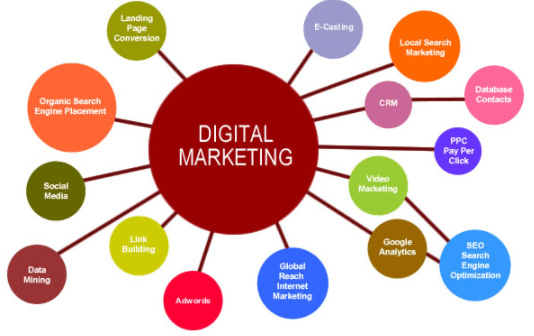In today’s fast-paced world, our reliance on smartphones is undeniable. They have become an integral part of our daily lives, keeping us connected, informed, and entertained. However, what happens when your trusty iPhone starts showing signs of wear and tear? Is it time to toss it aside and invest in a new one? Not so fast! With a little know-how and the right resources, you can tackle common issues and get your device back in action.
When it comes to iPhone repairs, there are a multitude of problems that can arise. From cracked screens to unresponsive buttons, these issues can be frustrating and hinder the overall functionality of your device. Fortunately, there’s no need to panic as we dive into the realm of iPhone repairs. In this comprehensive guide, we will explore step-by-step instructions to help you troubleshoot and fix common problems that may plague your device.
But what if you’re not an iPhone user? Fear not! This guide isn’t exclusive to Apple’s flagship device. We’ll also touch upon repairs for other popular devices such as iPads and Samsung Galaxy phones. Whether you’re an Apple aficionado or an Android enthusiast, we’ve got you covered.
To make your repair journey even smoother, we’ll introduce you to an innovative platform known as "SellUp." This platform simplifies the process of finding certified repair vendors in Singapore. No more endless searches or uncertainty about the expertise of the technician working on your device. With SellUp, you can confidently find qualified professionals who will get your iPhone, iPad, or Samsung Galaxy phone back up and running like new.
So, buckle up and get ready to dive into the world of iPhone repairs. Armed with the right knowledge and the support of SellUp, you’ll be able to tackle common issues and ensure your beloved device remains a trusty companion for years to come. Let’s get started!
1. Common iPhone Issues and How to Fix Them
-
Screen Display Malfunction:
One of the most common issues iPhone users face is a malfunctioning screen display. This can range from unresponsive touch screen to flickering or blank screen. To fix this problem, start by restarting your iPhone. If that doesn’t work, try a hard reset by holding down the power button and the volume down button simultaneously until the Apple logo appears. If the issue persists, it might be necessary to replace the screen or seek professional repair assistance. -
Battery Drainage:
Is your iPhone’s battery draining faster than usual? This can be frustrating, especially when you’re on the go. To troubleshoot this issue, check for any battery-consuming apps running in the background. Close them or disable their background refresh feature. You can also try reducing screen brightness or enable the battery-saving mode in your iPhone’s settings. If these steps don’t solve the problem, it could be a faulty battery that needs replacement. -
Camera Not Working:
If you’re unable to capture photos or videos using your iPhone’s camera, there might be a software or hardware issue causing the problem. Start by closing the camera app and reopening it. If that doesn’t work, check if any third-party apps are blocking the camera functionality. Resetting the iPhone’s settings or updating its software can also help resolve camera-related issues. However, if none of these solutions work, it’s best to visit a certified repair vendor or contact Apple support for further assistance.
Remember, while these troubleshooting steps can often fix common iPhone issues, not all problems can be resolved on your own. If you’re unsure or uncomfortable with repairing your iPhone, it’s always advisable to seek professional help to avoid causing further damage.
2. Finding Certified Repair Vendors in Singapore
When it comes to finding certified repair vendors in Singapore for your iPhone, iPad, or Samsung Galaxy Phone, SellUp is the ultimate platform to simplify the process. With SellUp, you can easily connect with trusted and reliable repair experts who are certified to fix your device.
SellUp offers a wide network of certified repair vendors in Singapore, ensuring that you have access to the best professionals in the industry. These vendors are carefully vetted and authorized to handle various types of repairs, ensuring that your device is in safe hands.
To find a certified repair vendor in Singapore through SellUp, simply visit their website or download their user-friendly mobile app. Once you’re on the platform, you can input the specific device you need to be repaired, whether it’s an iPhone, iPad, or Samsung Galaxy Phone. SellUp will then connect you with a list of certified repair vendors who specialize in fixing your device.
With SellUp, you can read customer reviews and ratings for each repair vendor, giving you insights into their credibility and service quality. You can also compare prices and turnaround time to make an informed decision that suits your requirements.
Finding certified repair vendors in Singapore has never been easier. Trust SellUp to simplify the process and get your device back in action in no time!
Stay tuned for the next section of this ultimate guide, where we’ll delve into common iPhone repairs and how you can address them yourself.
3. SellUp: Simplifying the Repair Process
Are you tired of the hassle that comes with finding a reliable repair service for your iPhone, iPad, or Samsung Galaxy Phone? Look no further! SellUp is here to simplify the entire repair process and make your life easier.
With SellUp, you can say goodbye to the frustration of scrolling through endless search results or relying on unreliable repair vendors. This innovative platform connects you directly with certified repair professionals in Singapore, ensuring that your device is in safe hands.
SellUp takes the stress out of finding a repair service by providing a user-friendly interface that allows you to browse through a wide range of repair options. You can easily compare prices, read customer reviews, and make an informed decision based on your needs and budget.
Not only does SellUp help you find the right repair vendor, but it also streamlines the entire process. Once you select a repair service, you can schedule an appointment online, eliminating the need for time-consuming phone calls or visits to multiple repair shops. With SellUp, getting your device fixed has never been easier.
Say goodbye to the endless search for reliable repair services. Choose SellUp today and get your iPhone, iPad, or Samsung Galaxy Phone back in action in no time.






